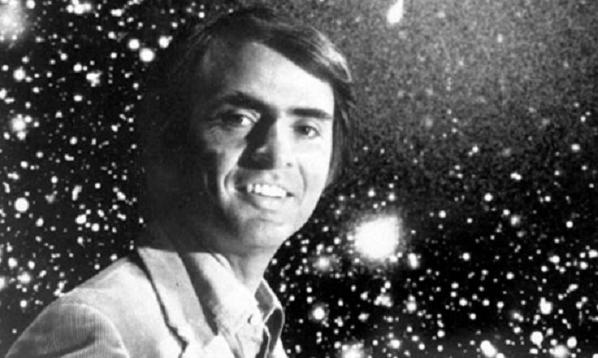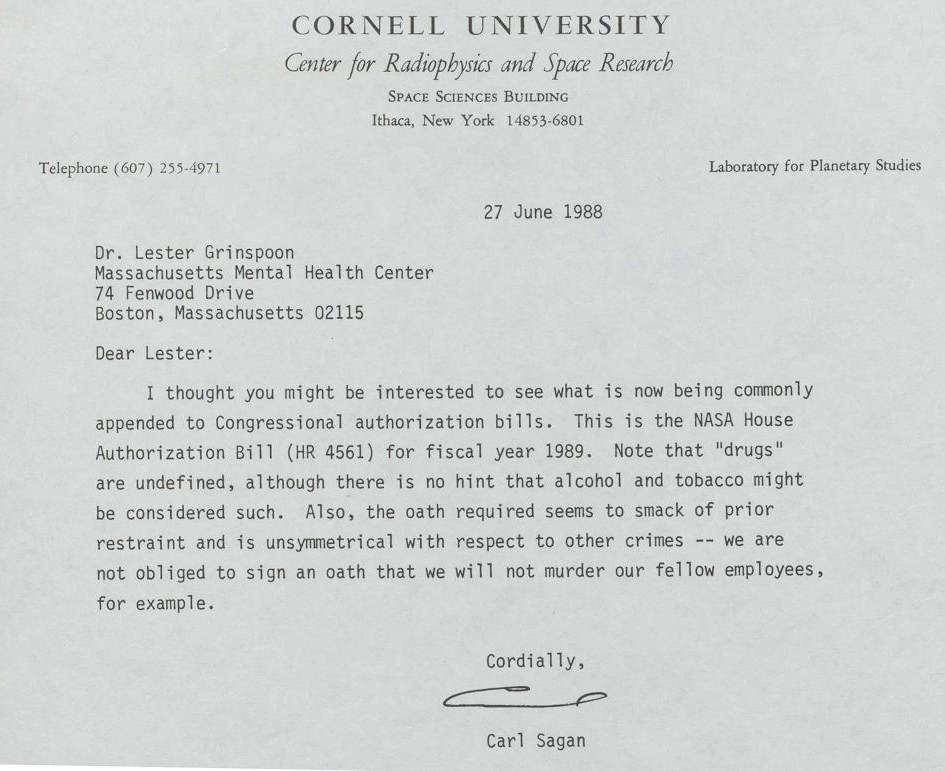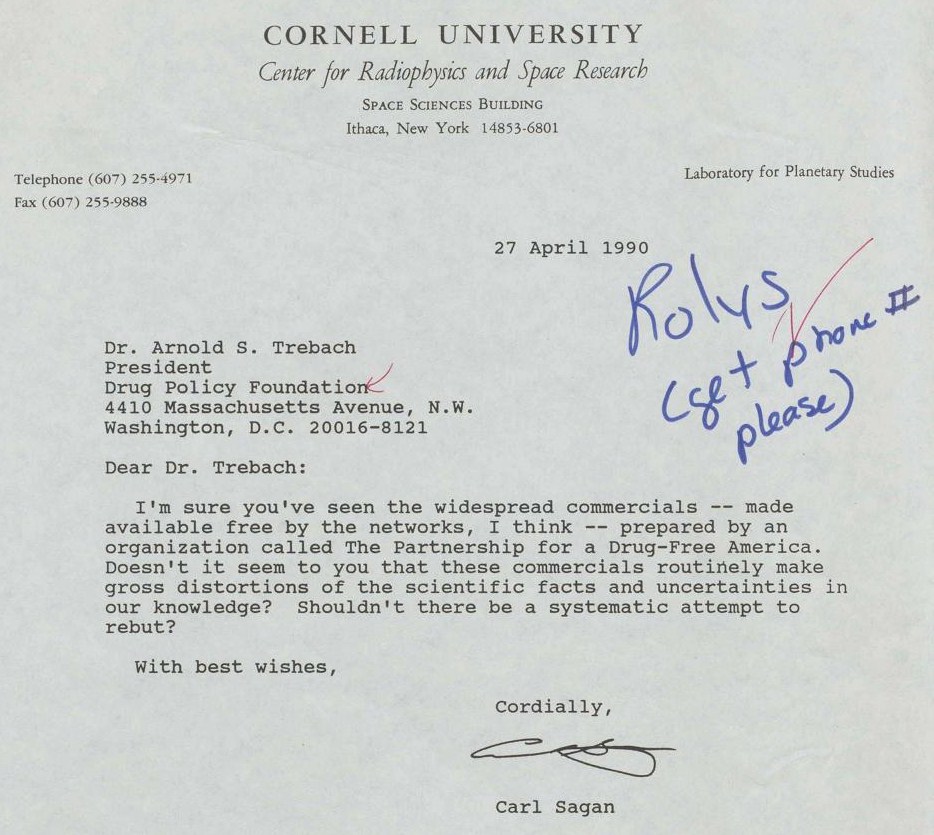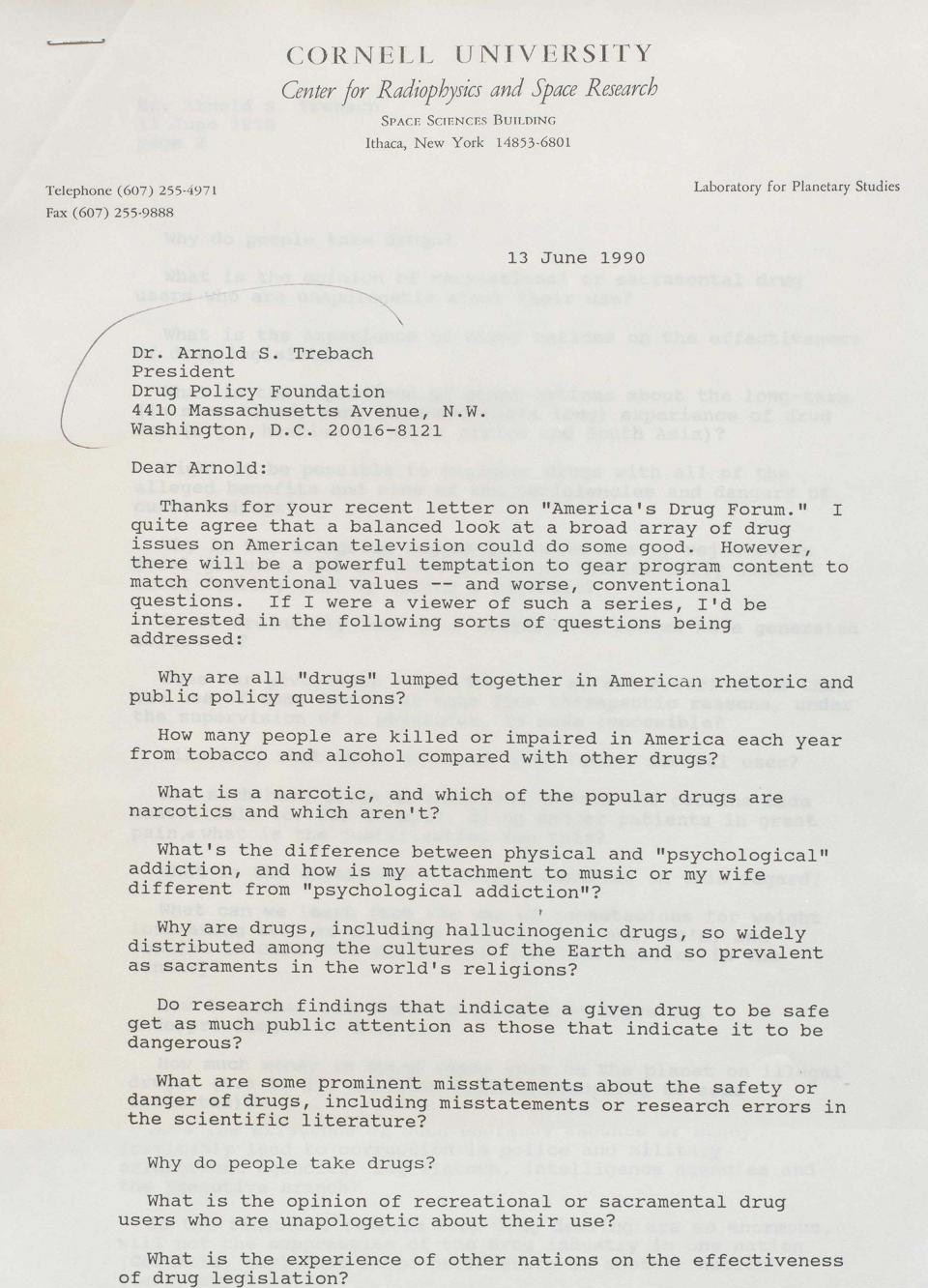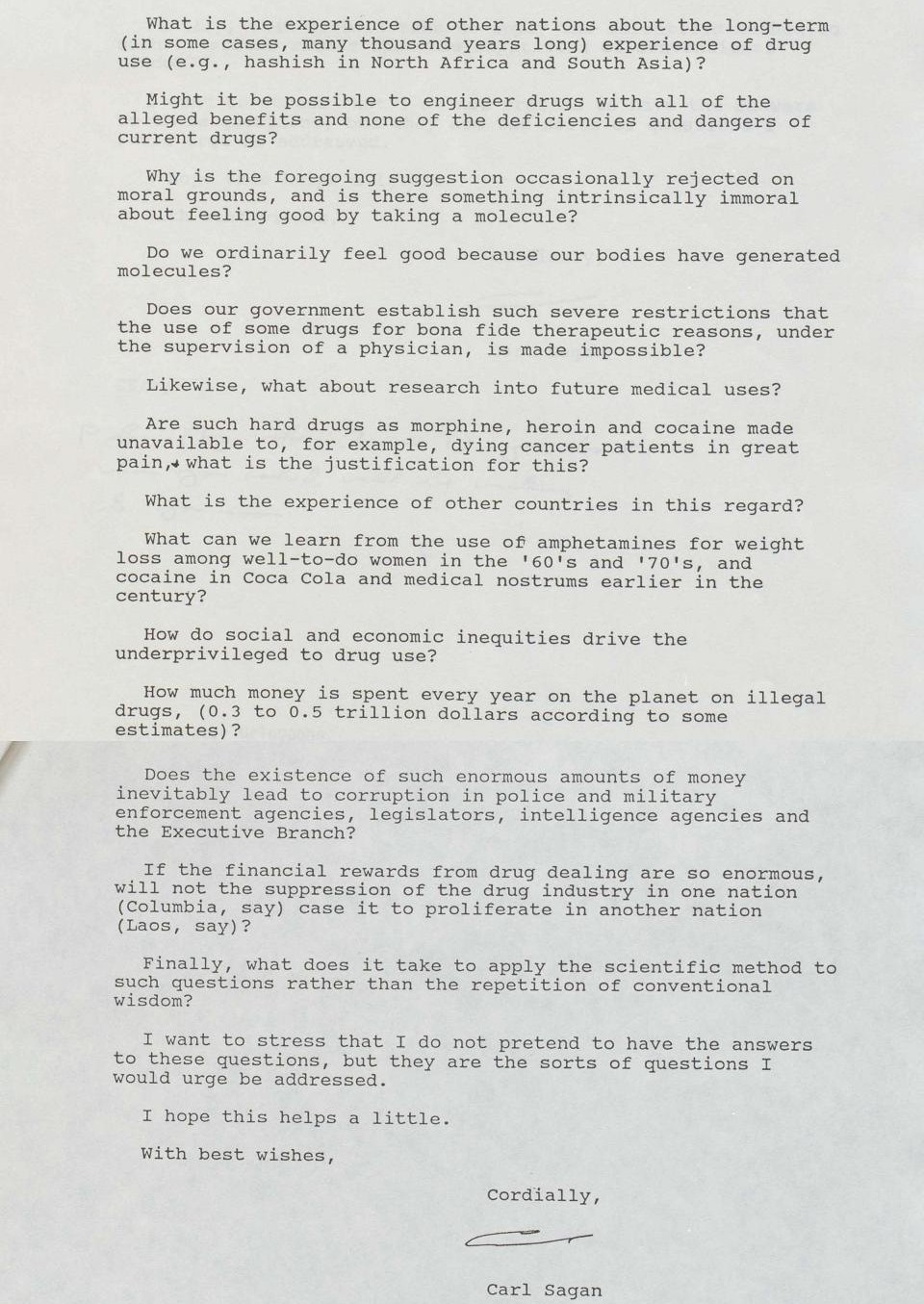Carl Sagan never got to see the day when people could go to a store and purchase weed without fear of the law. But thanks to a collection of his papers recently made available by the Library of Congress, we now have Sagan’s personal writings on cannabis.
This 1988 Sagan letter shows why a government-funded scientist might be reluctant to draw too much public attention to his views about marijuana in the midst of President Reagan’s drug war.
Writing to Dr. Grinspoon (editor of Sagan’s famous essay on the benefits of cannabis), Sagan expressed outrage about language in a congressional funding bill for NASA that required contractors like him to adopt written anti-drug-use policies:
The oath required seems to smack of prior restraint and is unsymmetrical with respect to other crimes.
Annie Druyan confirmed Sagan enjoyed marijuana “frequently.” She made it clear just how important cannabis was in their life together: “We smoked the way other American families would have wine with dinner. For us, it was our sacrament. It was something that made a great life sweeter in every possible way.”
Druyan also described how Sagan utilized marijuana’s medicinal properties to experience a measure of relief. He used cannabis to treat “not only the lack of appetite and the nausea [from chemotherapy]but to refocus on the beauty of life in the midst of such torture.”
The plant’s effects directly impacted the couple’s work over their decades of collaboration on everything from “Contact” to the 1980 PBS series “Cosmos” that Sagan hosted and that they wrote together. The 2014 Fox reboot of “Cosmos” — hosted this time by Neil deGrasse Tyson and again co-written by Druyan — not only took home four Emmys, but made mention in one episode of 17th Century scientist Robert Hooke’s use of cannabis while describing him as “possibly the most inventive person who ever lived.”
War on Drugs or War on Consciousness?
This disconnect from science was among Sagan’s chief concerns about the criminalization of marijuana. It was “something that particularly infuriated Carl as a scientist,” Druyan says. He was troubled by not only the “bad civic engineering but the very bad science behind prohibition.”
In 1990, Sagan wrote to leading drug policy reform campaigners suggesting they organize a rebuttal to the propaganda being spread by the Partnership for a Drug-Free America:
In another letter from 1990 Sagan laid out these fundamental philosophical questions underpinning America’s drug war:
Why are all “drugs” lumped together in American rhetoric and public policy questions?
Why are hallucinogenic drugs so widely distributed among the cultures of the Earth?
Do research findings that indicate a given drug to be safe get as much public attention as those that indicate it to be dangerous?
How do social and economic inequities drive the underprivileged to drug use?
With the success the Cosmos reboot and with more states voting on legalizing marijuana in November, the newly unearthed Sagan documents add to the growing consensus that marijuana prohibition is not grounded in science and is not supported by leading thinkers and prominent people.
“We are going at warp speed toward getting rid of that prohibition now,” says Grinspoon.
> Carl Sagan’s Long Lost Deep Thoughts On The War on Drugs | Marijuana News

